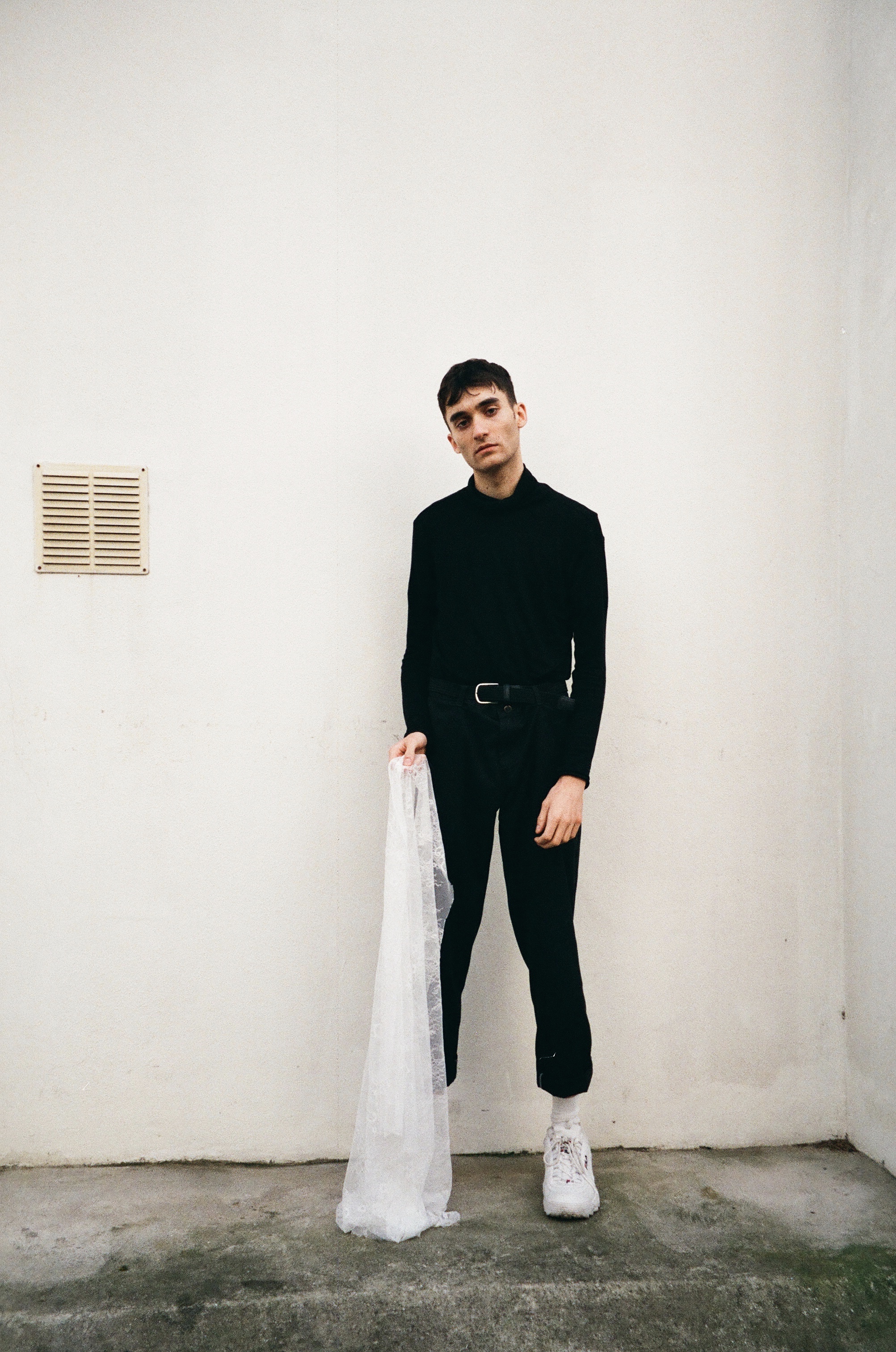Otto Hashmi - Sleep
Words: Otto Hashmi @ottohashmi | Photography: Ellie Connor-Phillips @elliecp_
Sleep is very special to me because it documents an entire year of my life. I began working on it around Autumn 2017 as my Extended Studio Composition for my final year studying Music at the University of Bristol. At the time I had just begun touring with Suzi Wu so a lot of it was recorded on the road. The acoustic guitars on Dusk were recorded in Los Angeles, a lot of the 808 programming was done in Austin, the foley noises in Sleep were recorded at my home in London, and most vocals were recorded in the studios of the Victoria Rooms in Bristol. On the road at this time I almost faced disciplinary action from the university for my prolonged unapproved absence whilst performing at SXSW. Thankfully that amounted to nothing, and ironically I ended up winning the University of Bristol Final Year Studio Prize for my composition. I find it funny to imagine that that may not have been the case had I stayed put in Bristol instead. Sleep sounds like pure nostalgia to me now, and honestly there’s so much of it I would change or improve a year on. But I think that’s the way with art – in this instance it has more to say when left as it is.
Sleep fascinates me, more specifically the movement from alert consciousness into slumber. It terrifies me too. I find the process of letting go into that state of not caring a beautiful metaphor for so many other things in life. The composition starts off in an upbeat style, heavily influenced by UK Drill, Afrobeats, Footwork, that sort of thing – very London-centric. As it progresses it slows down and the influences of Ambient and Contemporary Classical come into play: Sleep Research Facility, These New Puritans’ “Field of Reeds”, Holst’s “Neptune”. It sounds funny, but I was also massively influenced by the ‘soothing’ qualities of ASMR and in contrasting this with musical dissonance during the piece’s final minutes in order to create an oxymoronic sense of calm tension. Zak Eastop’s amazing Flugelhorn performance serves as a link in the constant deceleration towards this. Sleep is both a representation of literally falling into sleep, a metaphor for letting go emotionally, a metaphor for death. A metaphor for our acceptance of the end times and our cultural existence.
Sleep is dedicated to my old teacher and friend Jonny Webb (1970-2018). jonnywebb.co.uk
Thank you to Myylo Whyte for the bars on Dusk, to Emre Yavuz for the additional Cello used on Dusk, and to Zak Eastop for the Flugelhorn throughout. Thank you to Ellie Connor-Phillips for the cover art and photoshoot. A massive thank you also to my university tutors for their understanding with my peculiar situation during my final year of study. It’s safe to say it was worth it.
I’ve been photographing Otto at intervals ever since we met properly in 2016. We’ve worked on little projects for XXY Magazine, the previous newsprint editions of 5.18 and more, and so I jumped at the chance to shoot some imagery to go with the release of “Sleep.” As with his music, Otto’s vision and attention to detail always comes through strongly in any work we do, making it exciting trying to document and capture the ideas he has in mind. The lace we used was actually a remnant from one of my first projects at university; I’d painted a car tire in ink and rolled it across the other half. There’s something nice in revisiting saved or stored work, past lives and previous visions; opening them back up and sharing them, adding new layers or fuelling them with new energy. It’s cathartic, it’s honest, it’s a way to see how you have grown but also celebrate the steps you took to actually achieve growth. “Sleep” is a beautiful demonstration of that; a piece made during such a poignant time in Otto’s life as both a student and as a working musician, capturing both the end of his time at university and the start of what looks like it will be a successful and active career. It is so exciting to share projects like this on 5.18 - to highlight skills and talent in young people, sharing their work whether it’s old or new, and giving a voice to pieces that need to be heard. (Words: Ellie Connor-Phillips)







